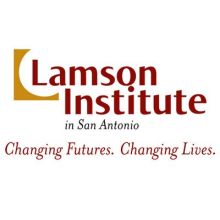Lamson Institute
Selected Programs at Lamson Institute
Explore programs at Lamson Institute. This list is curated by SkillPointe to match skills-based industries and careers that don't require a four-year degree.
Browse Training Programs (5)
Address
5819 NW Loop 410-Ste 160
San Antonio, TX 78238
San Antonio, TX 78238
Phone number
210-465-1794

